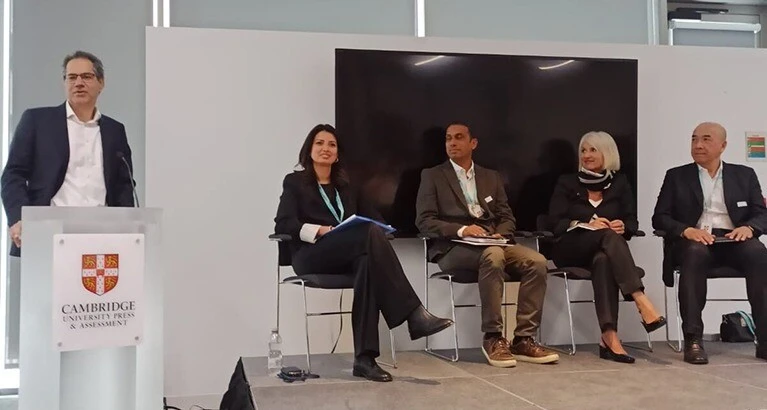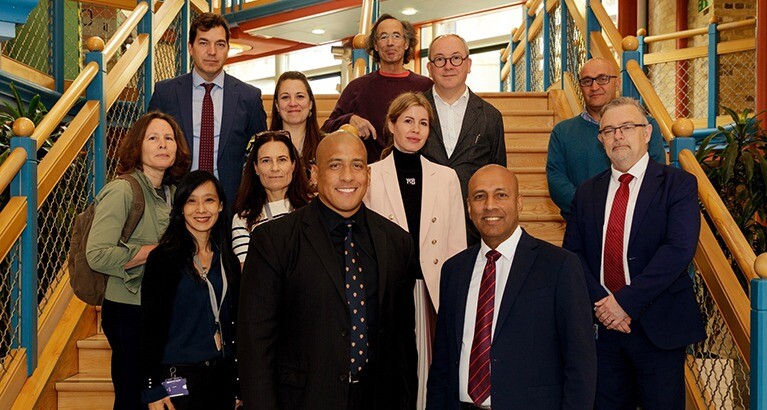A new book about philanthropy in the Global South was launched (18 June) with a panel discussion featuring the book’s editors and other contributors at The Triangle Building headquarters of publisher Cambridge University Press and Assessment (CUPA).
The 223-page book highlights a needed shift during the COVID-19 pandemic of influence from the Global North to the Global South, and emphasises the importance of partnerships involving governments, NGOs and the private sector.
Book is free to download
The launch event was hosted by the Partnership for Education at CUPA, and the book is free to download from the CUPA website.
“Reimagining Philanthropy in the Global South – From Analysis to Action in a Post-COVID World” is edited by Clare Woodcraft, a Fellow at Cambridge Judge Business School; Kamal Munir, Pro-Vice-Chancellor, University Community and Engagement at the University of Cambridge and Professor of Strategy and Policy at Cambridge Judge; and Dr Nitya Mohan Khemka, Director of Global Alliances at Program for Appropriate Technology in Health (PATH) and a former Visiting Fellow at Cambridge Judge.
“We could see during the pandemic that philanthropy in the Global South was not working properly, so we wanted to find out why,” said Kamal. “All decisions regarding philanthropy in the Global South were made by people in the Global North, but the real-time information was all coming from the Global South,” so this imbalance needed addressing.
Contributions from many countries in the Global South
“This is a great start and we hope to build on this,” he said of the book, which includes contributions by Global South practitioners from countries including Indonesia, India, Malaysia and South Africa.
The book includes a foreword by Mohammed El-Erian, President of Queens’ College, University of Cambridge, and donor to the El-Erian Institute of Behavioural Economics and Policy at Cambridge Judge Business School.
Featured research
Woodcraft, C., Munir, K. and Khemka, N.M. (eds.) (2024) Reimagining philanthropy in the Global South: from analysis to action in a post-COVID world. Cambridge University Press
Related content
“Transforming Global South philanthropy post-COVID.” University of Cambridge





